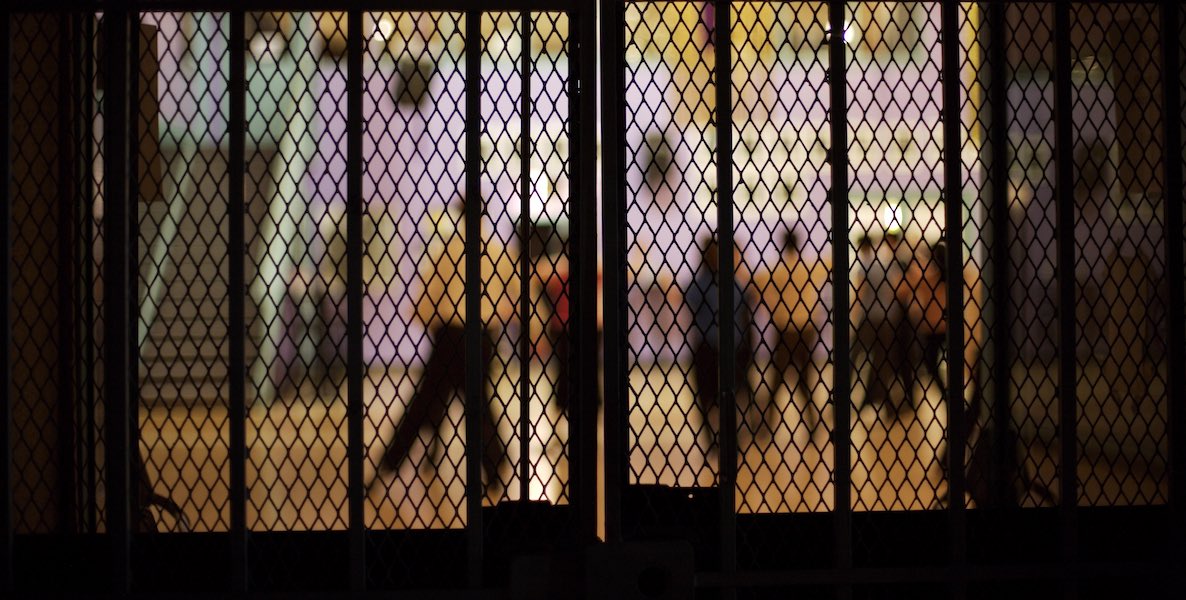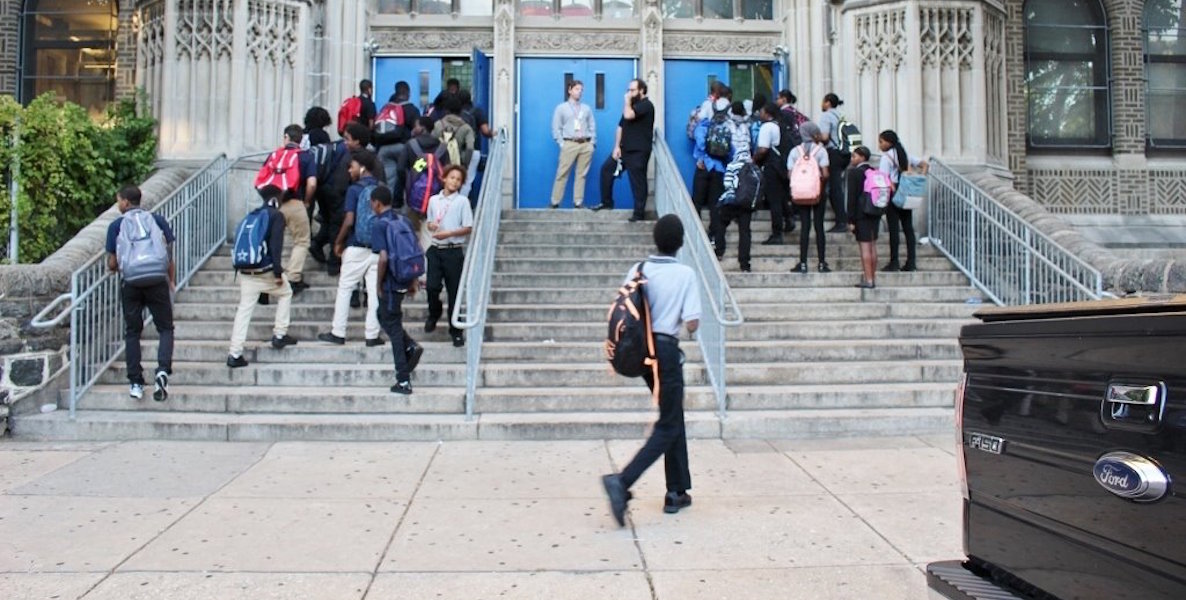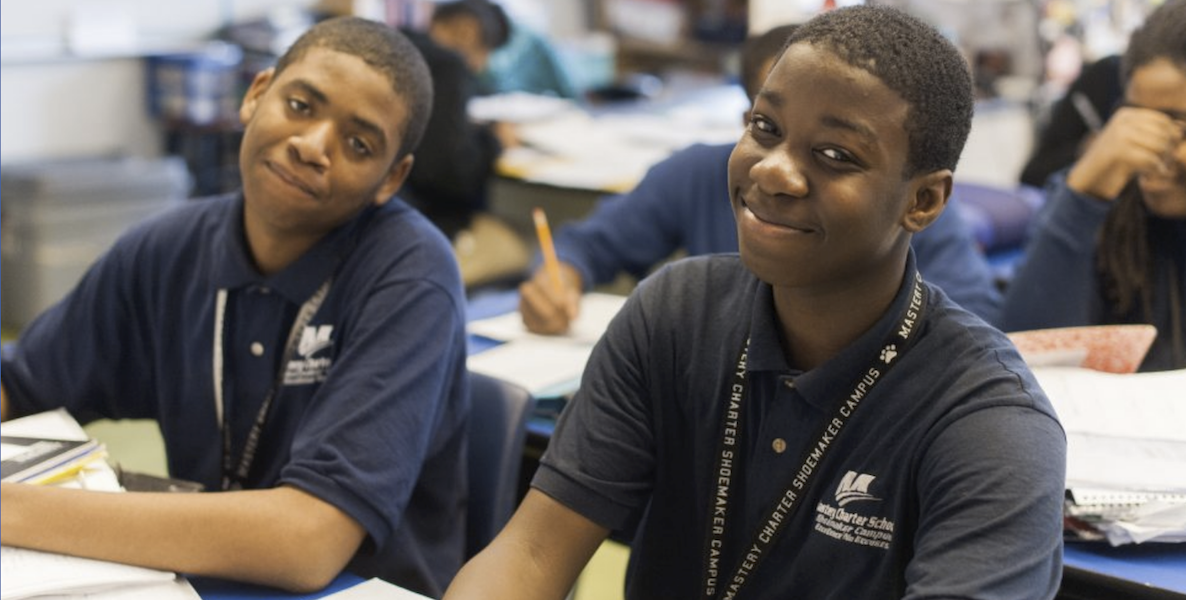“I fear I may have integrated my people into a burning house.” – Dr. Martin Luther King, Jr.
On January 17, we celebrate the Dr. King holiday (which also coincides this year with his actual birthday). While some schools, like those in Quakertown, one of Pennsylvania’s hotbeds for school/community based racism, inexplicably used this day to make up for lost school days, others took the time to reflect on the radical traditions of this civil rights leader.
When I hear NAACP and union leadership insisting that educational justice for Black children cannot be achieved unless the elusive wholesale integration effort occurs, I know they belie Dr. King’s radical traditions about economic, and thus educational justice.
At the end of the day, it isn’t about integration of schools, it is about educational (economical) justice for our students and communities.
What Dr. King came to understand is chasing white people, full throttle, to spend our money with them, or to live with them, or for our children to be schooled with them, is not the embodiment of justice.
It would be one thing if our students were being welcomed to integrate. History and recent events show many white people are adamant in their quest to live in a segregated society; those with means and choice, tend to move to more segregated neighborhoods, send their kids to segregated schools. And even when there are Black children in predominantly white schools, honors and Advanced Placement classes are as segregated as ever. Several school districts have used policies to secede from their districts in conspicuous attempts to become whiter (and wealthier).
Across Pennsylvania, student-led racism continues to be a problem. One of the growing reasons for Black families to exercise parental choice and homeschool their children is to ensure their children are in safe spaces.
When Black folks choose to demonstrate self-determination, and choose a school-based experience that reflects the cultural awareness and understanding that being around other Black children brings, the accusations of reverse racism (there’s really no such thing) emerge. When Black parents self-select a Black experience, they shouldn’t have to contend with significantly fewer resources and funding.
Too often, the burden of integration is placed on Black and Brown folks. It’s the rare White child that attends an all-Black or Brown school.
Black families choosing all-Black schools is not synonymous with policies that systematically restrict access and opportunity. There is a colossal difference between forced segregation and voluntary association and integration. And, while Dr. King may have started off with forced integration, that is not where he ultimately landed. Choice Media filmed some of our students’ responses to the fallacy that charters create school segregation:
The main fight should be to ensure that even in all-Black spaces, the resources are just. We know that is rarely the case. While people recall that “separate but equal” is unconstitutional, no one has been able to point out anything but the continued systemic separate and unequal practices in our schools and districts. Even children know that the Whiter the district, the more resources funneled to them.
Dr. King lamented:
And, I’m afraid that even as we integrate, we are walking into a place that does not understand that this nation needs to be deeply concerned with the plight of the poor and disenfranchised. Until we commit ourselves to ensuring that the underclass is given justice and opportunity, we will continue to perpetuate the anger and violence that tears at the soul of this nation.
Marian Wright Edelman and others were right; they worked with Dr. King as he shifted his focus and energy to launch the “Poor People’s Campaign.” Equity and justice in funding, resources, and opportunity is far more important in our schools than integration. Black students and parents should be able to attend a well-resourced school that affirms their identities, which is under assault most of the time.
At the end of the day, it isn’t about integration of schools, it is about educational (economical) justice for our students and communities. In 2014, Salon’s Joan Walsh captured what Dr. King stood for in her article, “The Radical MLK We Need Today”
What good does it do to be able to eat at a lunch counter if you can’t buy a hamburger? Post-integration, too many black people couldn’t sit down at integrated lunch counters and buy a hamburger; 50 years later, too many people of every race have the same problem.
Just as people cannot afford to eat at the integrated lunch counter, too many students, Black and Brown particularly, don’t have justice in funding, resources, or opportunities in either their own schools, or those they have “integrated” into.
Sharif El-Mekki is the principal of Mastery Charter School–Shoemaker Campus, a neighborhood public charter school in Philadelphia that serves 750 students in grades 7-12. This column also ran on his blog, Phillys7thward.org.
![]()
RELATED
Header Photo: Shoemaker School






